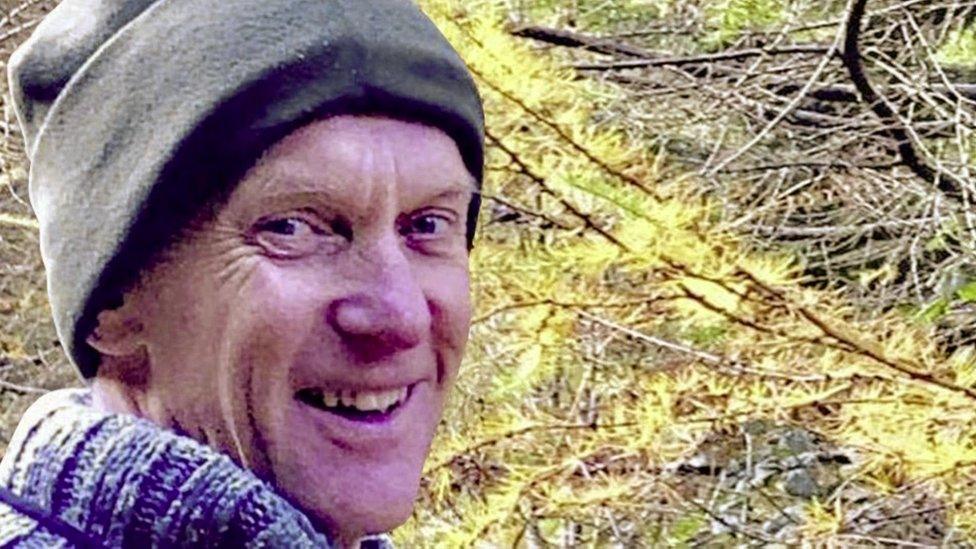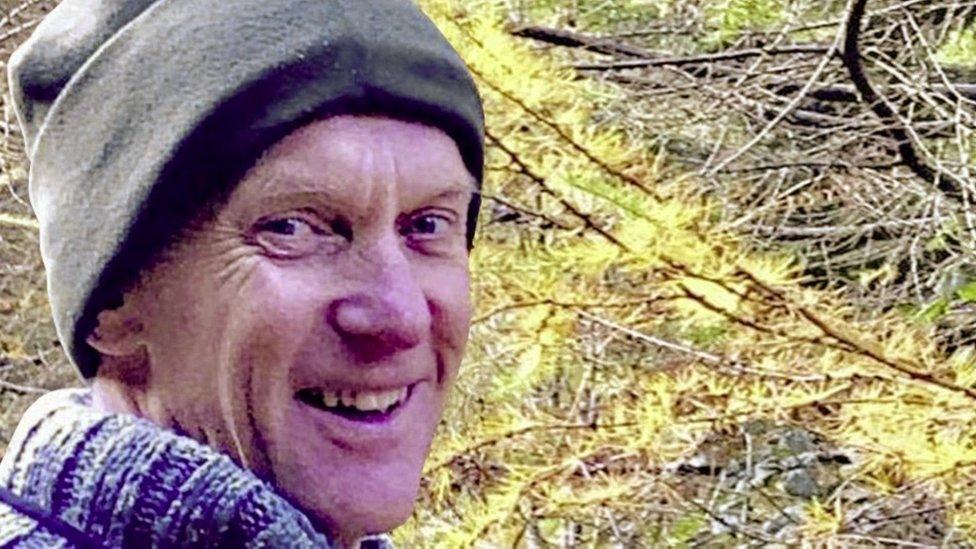Dr Michael Watt: General Medical Council welcomes voluntary erasure appeal
- Published

Dr Michael Watt's work, and its oversight, is the subject of three ongoing inquiries
The General Medical Council (GMC) has welcomed an appeal against a Medical Practitioners' Tribunal ruling to allow Dr Michael Watt's voluntary erasure from the medical register.
Dr Michael Watt's work, and its oversight, is the subject of ongoing inquiries.
He made an application to be removed from the register in October.
The Professional Standards Authority (PSA) has appealed against the decision which granted this request.
In a statement, a GMC spokesperson said it was "extremely disappointed" that Dr Watt's application was allowed.
'Reassurance and clarity to patients'
The council does not have the powers to appeal the decision itself but was "very pleased" the professional standards watchdog decided to.
"We hope this will give reassurance and clarity to Michael Watt's patients and their families," added the spokesperson.
A patient is also, separately, seeking a judicial review of the decision to allow Dr Watt voluntary erasure.
The PSA said it has referred the matter to the High Court in Northern Ireland due to concern that the ruling on Dr Watt was "not sufficient to protect the public".
Dr Watt's removal from the register means he can no longer practise medicine in the UK.
Concerns over his clinical practice prompted the biggest ever patient recall in Northern Ireland.
The Medical Practitioners' Tribunal Service (MPTS) hearing happened in private.
MPTS hearings are normally held in public - except where the circumstances of the case are viewed to outweigh the public interest or where details of a doctor's health are being considered.
The MPTS makes independent decisions about cases referred by the General Medical Council (GMC).
The tribunal concluded that Dr Watt did not have "the ability to engage with a fitness to practise hearing".
That meant it would not be possible for such a hearing to take place in a way that would be "fair to the doctor".
The tribunal said it also considered sanctions guidance as to whether any exceptional circumstances applied to the case including where "the doctor does not have capacity to understand the allegations or to see/act on legal advice".
The MPTS has published a redacted record of the reasoning behind its decision to allow Mr Watt's application for voluntary erasure to be granted in private.
It said it was of the view that the public interest in this case was "finely balanced".
It also said that the "inability of Michael Watt to engage with a fitness to practice hearing meant that it wasn't possible for such a hearing to take place in a way that would be fair to the doctor".
The tribunal said that it also considered medical evidence that there was a high risk of Mr Watt taking his own life.

In May 2018, the Belfast Trust recalled 2,500 patients for review after concerns were raised about the clinical work carried out by Dr Watt at the Royal Victoria Hospital in Belfast.
This was followed by a further 1,044 patients who were recalled in November 2018.
A report has found almost 20% of patients seen by Dr Watt were given a wrong diagnosis.
An independent inquiry has been hearing evidence since September 2018 and has concluded oral evidence.
At the end of September, it emerged that interactions with a patient by the former neurologist had also raised serious concerns, according to a medical ethics expert.
London-based barrister Daniel Sokol reviewed evidence obtained by BBC Northern Ireland's Spotlight programme, including text messages between Dr Watt and the female patient that were sent between 2017 and 2020.
Related topics
- Published11 November 2021

- Published4 November 2021
